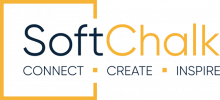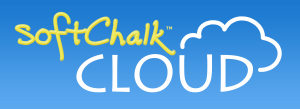From Sue Evans, Co-Founder and CEO
With the recent release of SoftChalk Cloud, you’ll have to excuse our eager chatter about all things cloud. We have many good reasons to be enthusiastic, including the ways in which the cloud enables and enhances the use and development of open education resources (OER).
OER provide an excellent way for educators to connect with one another and to collaborate in creating multimedia-rich lessons and courses so that students can learn effectively—and they may even enjoy their lessons more along the way. But how do you find and share the most rich and engaging OER? That’s where cloud-based repositories come in.
Repositories like SoftChalk Cloud, MERLOT, Flatworld Knowledge and more can be thought of a bit like YouTube, with lessons, quizzes, textbooks and other media, instead of only videos. In this sort of environment, users can share and view content from a single activity, a multi-page lesson, or even an entire eCourse. These repositories also include powerful search functions that allow you to find specific materials based on subject, education level or type of content – rather than wasting your time sorting through the Google deluge.
What may be most helpful for educators is that OER provide pre-existing teaching materials, licensed for fair use under Creative Commons. So, for the less tech-savvy teachers, they can enter the (sometimes intimidating) online classroom with clear and engaging lessons for their students. It also saves college students from spending thousands on textbooks, and K-12 students from worksheet drudgery.
Many OER are available to be remixed, in addition to being reused. Educators can easily adjust materials to make them their own; users can combine individual OER content items together or take them apart. This can help build their expertise in creating learning objects, and allows them to work towards making their own contributions to the OER space.
With this, educators can build a community around OER that helps produce outstanding educational resources, and some repositories actively encourage collaboration. For example, SoftChalk Cloud allows members to maintain a profile, rate and comment on learning objects and work together to improve the same learning object.
Ultimately, OER repositories allow educators to more easily provide students rich, multimedia eLearning experiences. What’s more, OER bring teachers from their separate computer desks together on an online community. By sharing the lessons and activities that they have employed in their own classrooms, educators can learn, grow and benefit from a global knowledge base.


Leave a Reply